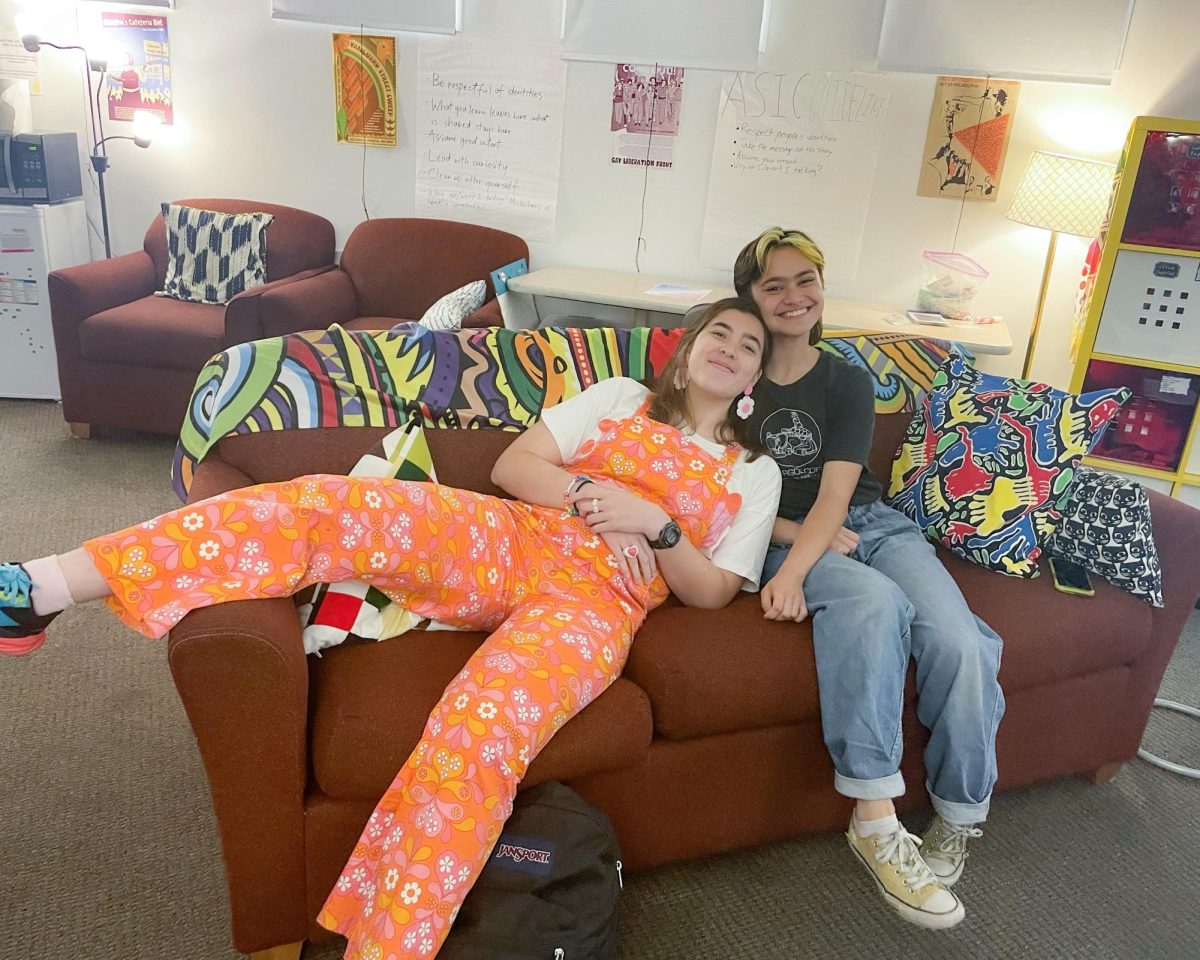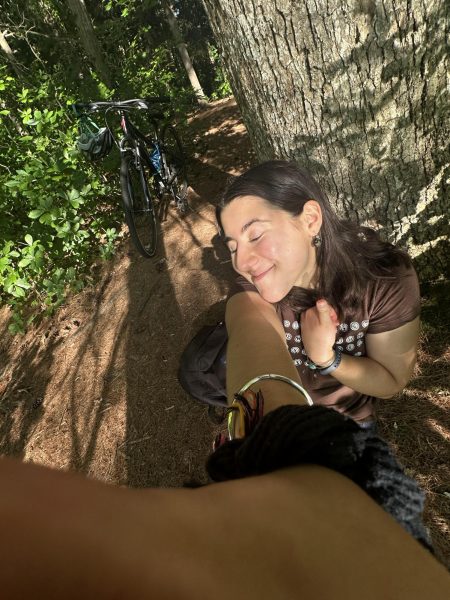October is LGBTQIA+ History Month. History months celebrate the stories of communities that are often left out of the narrative. However, many queer people have been unable to share their story out of fear for their own safety. Even when they did share, their stories often were not widely documented. So how can queer people fully celebrate their past, when so much of it has disappeared?
Oli Tierney ’24 and Ryan Cotter ’24 know that oral histories cannot bring back all of these lost stories, but they are nonetheless an incredibly powerful way to share queer narratives. Tierney and Cotter’s “Queer Oral History Project” aims to compile the voices of queer Macalester students and alumni through interviews about their experience. Cotter and Tierney especially want to interview BIPOC and/or trans people, but they welcome all members of the queer community.
The Queer Oral History Project will especially focus on queer involvement in activism, as queer activist voices are “really invaluable, really important …instruments of change,” Cotter said.
In the past, queer activist groups at Macalester have initiated important reforms. For instance, Macalester added sexual orientation to its non-discrimination policy in April 1985 following lobbying from the Macalester Lesbian and Gay Coalition.
Tierney and Cotter want to highlight more recent queer activist history too, especially work done in 2019–2021.
“It was a very turbulent time, and there are a lot of queer Macalester students who did some incredible organizing work, but that never got documented,” Tierney said. “We wanted to make sure that those stories didn’t get lost to time.”
In 2019–2021, queer student activists were especially involved in two movements: the Black Lives Matter movement, and protesting Line 3, an oil pipeline that activists argue harms the environment and violates treaties with Native American communities.
In one of Teirney’s freshman year courses, which took place virtually because of the COVID-19 pandemic, a senior called in to class from northern Minnesota, where they were temporarily living to help indigenous people protest Line 3.
“There were students …sacrificing bits of their education to stand up for what’s right,” Tierney said.
They and Cotter don’t want to let acts like that slip through the cracks of the historical record.
“Just the thought that the next generations of students won’t even know about what happened … I just really hope those stories continue to get told,” Tierney said.
The goals of the project are to uplift queer voices on campus and beyond and to help queer students realize that they are not alone. A vibrant queer community, past and present, stands with them.
“I’m a queer and trans person of color who has been involved in organizing, and it definitely feels like it’s been under-appreciated at times,” said Tierney. “This project is really important to me because it means that people will get to hear stories like mine.”
This October and November, Cotter and Tierney will be recruiting queer Macalester students and alumni to participate in their project as narrators (interviewees), interviewers or film editors. Recruitment will take place in that order.
In 30-60 minute interviews, narrators will share whatever they are comfortable with about their experience as a queer person and about their activism: as Tierney said, “The main labor that we’re asking for is just their story.”
Because narrators will be sharing personal information and possibly reliving traumatic events, they will be compensated for their work. Before the interview, they will be informed about their ethical rights and reminded to consider what they do and don’t want to share on the historical record.
The team hopes to conduct the interviews in February and March of this school year.
In January, the Digital Resources Center will train interviewers on the interview process and equipment. Cotter and Tierney will also lead a session on ethics, which the interviewers will attend. Interviewers will be expected to conduct one or two interviews.
Finally, editors will go to a technical training, then edit one or two people’s stories. This will mostly include cutting down the interviews as need be. The editing process will hopefully take place in March.
The team aims to release the Queer Oral History Project in April. This will not, however, mark the end of its journey. Tierney and Cotter hope that this will be an ongoing project, something that students will add to in the future as queer history continues to be made on campus and beyond. Students who are interested in participating can reach out to Oli Tierney at [email protected] and/or Ryan Cotter at [email protected].













